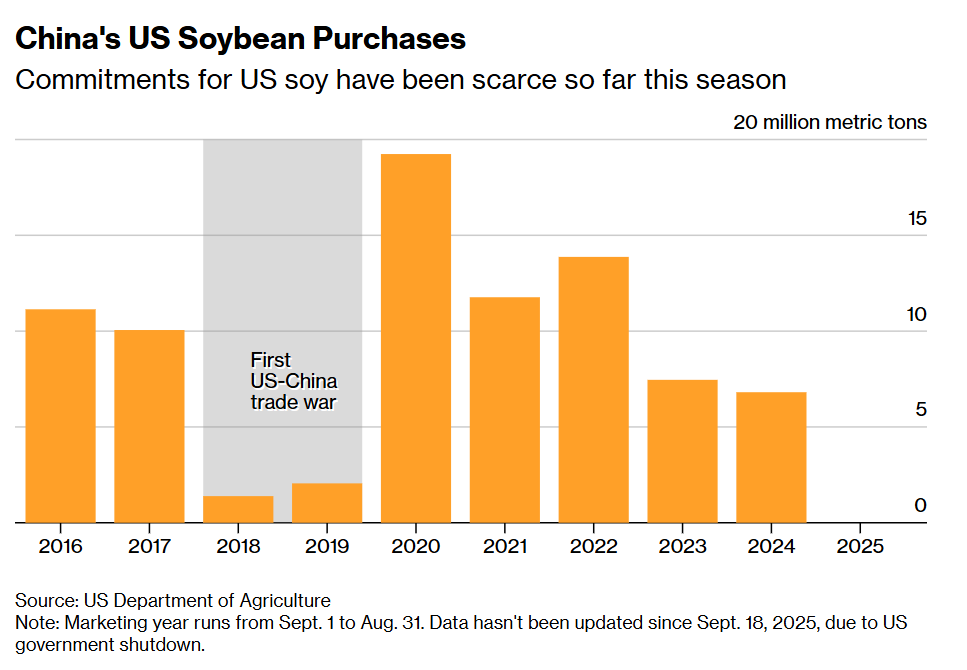China purchases first US soybeans of the season

China has bought at least two cargoes of US soybeans, marking the first known purchase of the crop this marketing year. This move may signal a revival of shipments as part of a broader trade settlement expected between the two largest economies this week.
The shipments are booked for loading and possible delivery later this year, according to sources familiar with the matter, who asked to remain anonymous as they are not authorized to speak to the media.
Over the past weekend in Malaysia, Chinese and US officials reached a broad framework agreement, paving the way for a full trade deal between leaders Xi Jinping and Donald Trump. The agreement would gradually roll back tariffs, fees, and export restrictions implemented or announced in recent weeks. The leaders are scheduled to meet on Thursday to finalize the details.
Until now, Beijing had largely avoided US soybeans, using them as leverage in the trade war with Washington. Chinese crushers instead turned to South America, securing record shipments, though this strategy increased costs and exposed them to weather-related risks.

US Treasury Secretary Scott Bessent noted that he expected “substantial” soybean purchases by China after negotiators addressed several contentious points over the weekend. Resuming trade could reopen access to the world’s largest soybean market, which was worth over $12 billion last year, providing relief for US growers facing prolonged financial strain.
Analysts and traders expressed cautious optimism: soybean prices in Chicago rose amid expectations of a deal, but uncertainties remain over the volumes China will actually buy and how the agreement will be implemented. It is unclear whether China will commit to fixed quantities, and profitability for local crushers may be limited given current soybean meal prices.
Experts also warn that even renewed US soybean imports could put pressure on processed products such as soybean meal. Meanwhile, US corn and wheat shipments to China remain near zero due to Beijing’s restrictions aimed at protecting domestic farmers. China’s long-term strategy to diversify suppliers and reduce dependence on the US is expected to remain in place.
Write to us
Our manager will contact you soon



